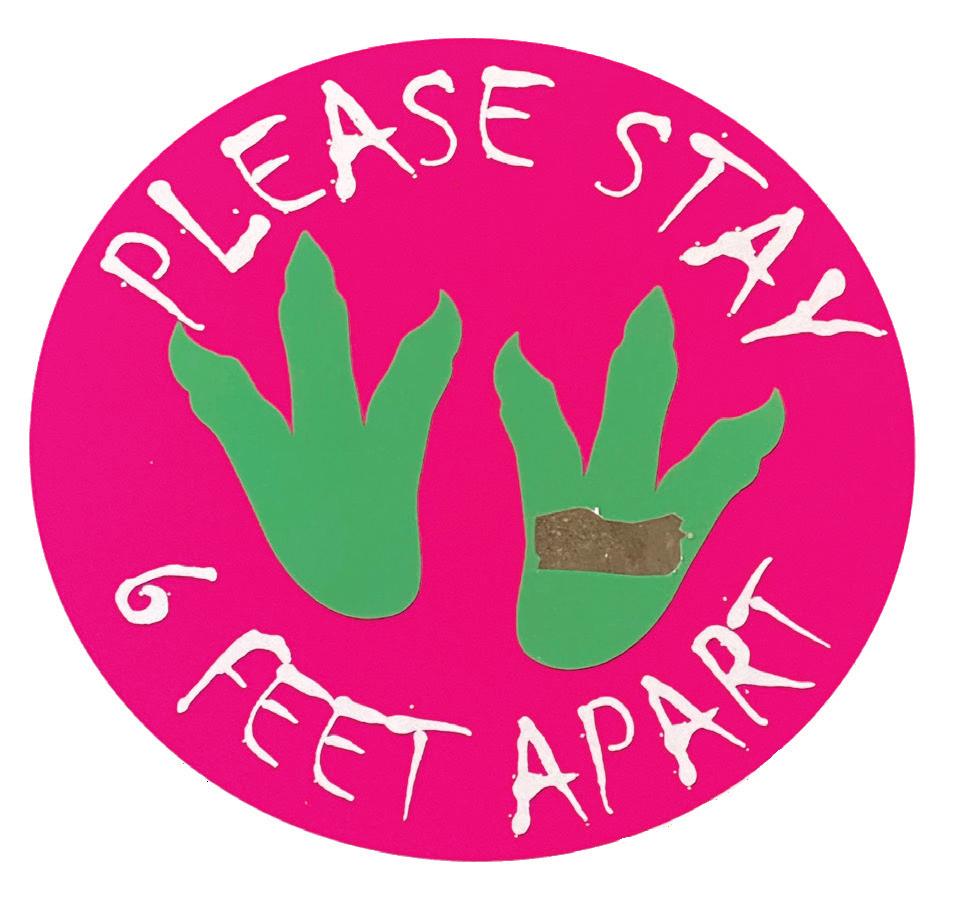
4 minute read
Keeping Your Customers Safe
Hotel and restaurant operators should maintain social distancing standards by communicating with their guests about what is being done to minimize exposure to COVID-19.
Social distancing standards will put additional burdens on the employer to make sure that a employee isn’t interacting with a customer for over 10 minutes, per the CDC, especially since interactions between employee and customer are sometimes likely to be less than six feet apart.
Advertisement
While these social distancing strategies will help improve safety for employees and customers, they will also have a dramatic impact on the customer experience. Speed of service could decrease due to extra precautions being taken in the back- and front-of-house, especially with fewer lines or POS positions open. Operators could also direct guests to pick up their food from the counter without having wait staff handle it, which would also impact the server-guest relationship.
Customers will have high expectations for safety practices, such as frequent sanitizing, glove use, restroom cleanliness and contactless hand sanitizers. Provide visual cues, such as signage or the presence of hand sanitizers or wipes for customers, and promotions on what you are doing front-of-house and back-of-house to keep employees and customers safe.
Staggering of employee schedules on both a shift and work week basis.
Staggering of employee breaks to minimize social interaction.
Update floor plans/layout in dining/lobby areas to make sure seating arrangements are at least six (6) feet apart.
Limit party sizes to no more than eight (8) people as indicated in Governor McMaster's Executive Order.
Provide social distancing floor guidance stickers to aid customers so they can adhere with proper social distance while in line, as well as provide directions/ instructions for pedestrian movement throughout your business.
Tightening of restrictions on visitors or off-duty employees in workplace.

Eliminate and/or reduce in-person check-in or checkout with automated process.


Photos courtesy of Colite

BU ILDING TRUST & CONFIDENCE AMID COVID-19
The COVID-19 pandemic is creating a new reality for the hospitality industry and everyone is feeling the impact. In mid-March when our lives were forever changed as the crisis spread across of the country, South Carolina was swift to respond but with a level of uncertainty.
Building trust in a time of crisis is necessary to rebound your business. Organizations are turning on a dime to improvise and make difficult decisions that will ultimately have lasting effects on their operations. In a recent survey by Qualtrics, they asked what factors make consumers trust a business more. The top three responses focused on the well-being of customers, the well-being of employees, and not taking advantage of the crisis to maximize profits.
What consumers find less impactful are messages of hope, optimism, nostalgia or even statements about strong moral principles. Businesses that fail to take these actions put their reputations and trustworthiness at risk.
Organizations showing up for their employees is one of the top reasons consumers trust any given business. Data shows that during uncertainty, workers are looking to employers and managers to lead even more than they are looking to governments and other organizations.
There are several ways you can demonstrate your desire to protect your employee such as having hand sanitizer readily available, performing health safety checks as employees come to work, social distancing of employees when possible, installing protective shields on the front desk or restaurant cashier/counter station, and providing personal protection equipment (PPE) like masks and gloves.
“Over the past several weeks, we have made extensive changes at our property and implemented an aggressive health and sanitation program to ensure we are doing everything we can to protect our guests and team members for our reopening,” said Raj Champanari, owner of the Aloft Downtown Columbia Hotel, “We

installed a protective barrier on our front desk from a Colite International to assist in controlling the spread of airborne diseases between staff and customers. The fact that they are a South Carolina company was a bonus and helped us keep the business local.”
While many are anxious to return to “normal life,” the return to pre–COVID-19 physical interaction will likely depend on individuals’ ability to trust that they will be safe from infection in public spaces, such as hotels and restaurants. The question of physical safety will likely be even more vital in our industriy where physical contact is sometimes necessary. Employees who interact with guests will need to trust that they can safely do their jobs, and that risk of infection is minimized.






